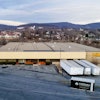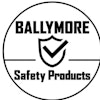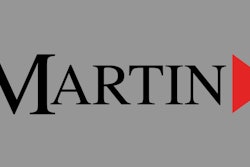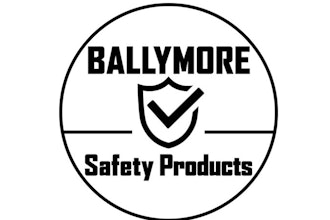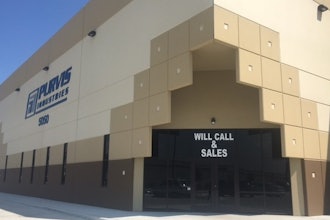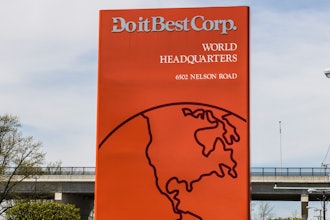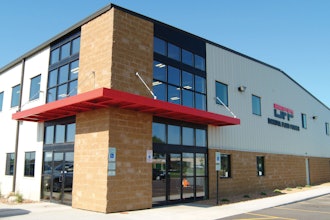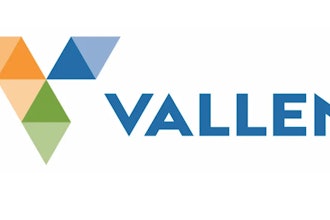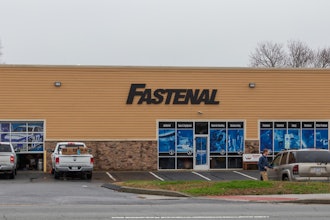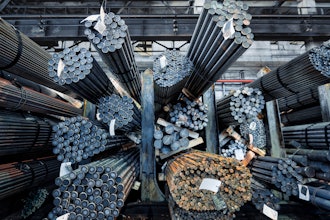According to the U.S. Department of Commerce and Bureau of Labor Statistics, material handling and logistics is one of America's largest and fastest growing industries. The consumption of material handling and logistics equipment and systems in America exceeds $156 billion per year.
John Nofsinger is the current CEO of Material Handling Industry of America (MHIA).
MHIA is an international trade association that has represented this industry since 1945. MHIA and affiliated organizations have sponsored trade events such as ProMat and MODEX 2012 for 60 years. According to the U.S. Department of Commerce and Bureau of Labor Statistics, material handling and logistics is one of America's largest and fastest growing industries. The consumption of material handling and logistics equipment and systems in America exceeds $156 billion per year.
More information on MHIA can be found on-line at www.mhia.org.
ID: Material handling, along with the industrial marketplace as a whole, has taken a hit from the recession. But now that we’re ending 2010 and moving into 2011, how would you describe the state of material handling?
JN: Industrial production increased significantly in the first half of 2010 even though factory operating rates (utilization) remained very low by historical comparison. The demand that was created as the economy shifted from recession into recovery mode (filling supply chain pipelines, re-establishing inventories, and responding to pent up demand) was the principle impetus for improvement in the first two quarters in manufacturing, warehousing, and distribution.
Material handling equipment orders are forecasted to grow 11 to 12 percent in 2011, according to the latest MHIA Material Handling Equipment Manufacturing Forecast.
Entering 2011, the material handling and logistics industry is increasingly seeing bright spots:
Both consumer and CEO confidence, as reported by the University of Michigan and CEO magazine (among other confidence polls), is strengthening.
Tax policy is becoming more business/commerce friendly over the near term — including a likely opportunity for a 100 percent write-off of most 2011 capital goods purchases.
Initiatives to dramatically increase American exports over the coming few years will create many new opportunities.
Efforts to repatriate off-shored activities are increasing.
ID: What about the job market in material handling, or manufacturing in general? Is it improving? How about the situation throughout 2011?
JN: We expect manufacturing hiring to increase in 2011. However, the number of jobs may not keep pace with growth as companies utilize various methods and resources — including material handling and logistics equipment — to increase their productivity to stay competitive. Manufacturing and the supply chain are currently seeing shortages in skilled labor, which are forecasted to increase over the next decade. MHIA is working to help our members, as well as end users, with this looming talent crisis via several initiatives: the College-Industry Council on Material Handling Education and the Technical Career Education Program. More on this can be found at www.mhia.org/cicmhe and www.mhia.org/tcep.
This is such a huge issue in our industry, it will be addressed in several ways during ProMat 2011. First, the ProMat Conference will feature a half-day educational track titled “The people side of the supply chain.” This full afternoon track will take a close look at how to be successful at leading the people who keep the supply chain moving. The session will detail how to capitalize on diversity in the workforce, preparing people for the workforce, peer learning, and how to keep top talent as the economy recovers.
ID: We’re seeing a lot of innovation in technology all around the world of manufacturing. What about material handling? Are there any new technologies that manufacturers and their suppliers should keep an eye on?
JN: Success in the coming years will require considerably more effective and efficient cooperation and collaboration between trading partners and suppliers than has been the case in the past. This will require that goods as well as complete documentation move together concurrently. This increases the importance of sharing details and status at all levels of production and flow.
The material handling and logistics industry offers state-of-the-art innovations utilizing automated systems, software, automatic identification solutions, RFID, GPS, and others.
Many ProMat 2011 exhibitors will display these solutions that provide real-time visibility from pre-production to last-mile delivery. These solutions play a key role in ensuring the quality and safety of products and goods by controlling their environment and maintaining a reliable data trail to document quality and ensure safety.
ID: Almost all markets serving manufacturers have “gone green,” to an extent. Has the material handling industry done the same? What are the greener possibilities out on the market right now?
JN: Interest is high for sustainable supply chain solutions as major companies are considering requiring the carbon footprint of goods to be included on package labeling. Products produced efficiently and with environmentally-friendly and -sensitive content will be at a long-term advantage.
The material handling and logistics industry has responded with a wide variety of solutions that will be on display on the ProMat 2011 show floor. These solutions can help manufacturers reduce their carbon footprint by utilizing equipment and systems that reduce facility emissions and lower energy usage. Alternate energy systems, lighting, and ventilation solutions as well as reusable containers, pallets, and other sustainable facility solutions will also be featured.
In addition, the ProMat Conference will feature a half-day educational track on sustainability, the supply chain, and their future together. In this session, a wide range of speakers will detail what it takes to get started, what is working today, and what a sustainable supply chain might look like in a few decades.
ID: In a time when some people have stopped attending trade shows like they used to, why do you think ProMat is an important event to attend?
JN: Material handling and logistics done well is at the core of an organizations competitive advantage. ProMat 2011 is where you will see the solutions of the best in the business. By attending ProMat, you will quickly learn that the slowdown has not stifled innovation — the time has allowed providers to channel energies into new and exciting technologies and features aimed at taking you to the next level in managing your operations and supply chains. You will find new ideas and solutions at virtually every turn.
ID: If you were able to give a short pitch on why any business should take a second look at their material handling situation, what would that be?
JN:The next few years will prove transformative for virtually all sectors. The material handling and logistics infrastructure investments made today will differentiate companies for years to come. Material handling and logistics technology will provide tools indispensable to that differentiation.
ID: What else is MHIA hoping to do in 2011 to push the material handling industry forward?
JN: Obviously, the ProMat 2011 event over March 21-24 in Chicago will provide the biggest boost for our industry in 2011. Following that event will be our newly launched event, MODEX 2012, February 6-9, 2012 in Atlanta, GA. MHIA also provides ongoing resources for the manufacturing and supply chain industries online at www.MHIA.org.
MODEX 2012 is the industry's newest expo for the manufacturing, distribution and supply chain marketplace. MODEX 2012 will showcase equipment and systems solutions, as well as learning opportunities that span the entire supply chain, from material handling to logistics across manufacturing, assembly, and distribution. By attending you will meet over 500 of the leading providers and see their solutions in person, in action. The event is slated for Feb. 6-9, 2012, in Atlanta, GA. For registration or exhibitor information, visit www.modexshow.com.


